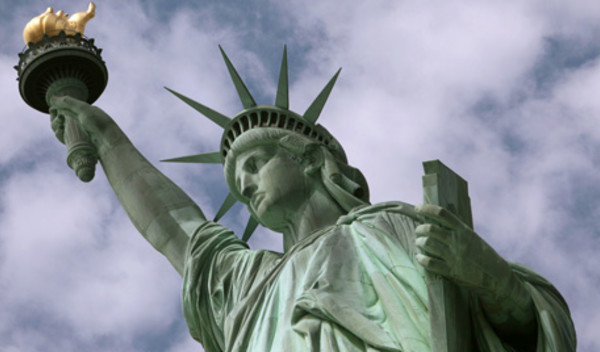One of the most talked about presidential races in history is about to take place and it could play a huge part on many elements of investment.
A Hillary Clinton win would have very different consequences from a Donald Trump triumph, and although the former looks more likely many managers are remaining cautious until after the result.
Tax reforms and equities
David Osfield, co-manager of EdenTree Investment Management’s Amity International fund, says Donald Trump’s plans for major tax reform – which would lower corporate tax from 39 per cent to 15 per cent – would push net profit and equity prices higher.
It is estimated that Mr Trump’s proposed plan would reduce the corporate tax take by $2tn (£1.6tn) over the next 10 years and cost $10-12tn (£8-10tn) overall. Another plan, dubbed ‘1-5-10-15’ income tax plan, consists of people earning up to $30,000 (£23,500) paying 1 per cent; income from $30,000 to $100,000 (£80,590) will be taxed at 5 per cent; $100,000 to $1m (£806,000) will be taxed at 10 per cent, and income of more than $1m will be taxed at 15 per cent.
Hillary Clinton’s main objective is to reduce the tax burden on the middle class and small businesses. She proposes a short-term capital gains tax on people earning $400,000 (£322,332) or more to combat “quarterly capitalism”, which Mr Osfield says could see investments held for a one or two-year period being taxed at a maximum income tax rate of 39.6 per cent.
Healthcare still remains one of the most important issues for US voters and investors. The country spends more than 17 per cent of its GDP on it. Mr Osfield says, “Both candidates have expressed concern over the cost of healthcare, with Clinton being the most aggressive, especially on the price of pharmaceutical drugs.”
“The impact to the wider sector is likely to be slightly negative as both candidates campaign aggressively at this late stage. In the medium to long term, the sector remains in rude health, with large-cap companies showing strong cash flows, rising dividends and supported by robust balance sheets.”
Whether this election will have a major effect on the US markets is yet to be seen. Data from Rathbones shows the average annual return for the S&P 500 since 1880 is 6.2 per cent, rising to 6.8 per cent in presidential election years. But that is not to say this year will be the same.












